Introduction
What Do Rabbits Like To Eat: Rabbits, with their charming personalities and endearing nature, have distinct dietary preferences that play a vital role in their overall health and well-being. As herbivores, their diets primarily consist of plant-based foods. However, delving deeper into what rabbits like to eat unveils a diverse array of vegetables, greens, and hays that cater to their nutritional needs and innate tastes. This article delves into the world of rabbit dietary preferences, exploring the foods that rabbits naturally enjoy and thrive on, ensuring their happiness and vitality.
Rabbits, with their charming personalities and endearing nature, have distinct dietary preferences that play a vital role in their overall health and well-being. As herbivores, their diets primarily consist of plant-based foods. However, delving deeper into what rabbits like to eat unveils a diverse array of vegetables, greens, and hays that cater to their nutritional needs and innate tastes. Rabbits eat wild have evolved to consume a variety of fibrous and nutrient-rich foods that contribute to their happiness, digestion, and overall vitality. This article delves into the fascinating world of rabbit dietary preferences, offering insights into the foods that rabbits naturally enjoy and thrive on, ensuring their optimal health and contentment.

What is a rabbit’s favorite food?
Hay is the most important part of a rabbit’s daily intake. Unlimited, high-quality grass hay, such as Timothy, orchard or brome, should make up the bulk of a rabbit’s diet. Grass hay is high in fiber, which is critical to maintaining a rabbit’s healthy digestive tract.
Hay: The Staple Diet
Perhaps the most essential component of a rabbit’s diet is hay. High-fiber hay, such as timothy, grass, or oat hay, provides the necessary roughage that keeps a rabbit’s digestive system healthy. It aids in preventing obesity, dental problems, and gastrointestinal stasis. Rabbits have a unique digestive system that requires constant chewing to maintain their teeth and keep their gut moving. Hay is not just a favorite; it’s a nutritional necessity.
Fresh Greens: A Colorful Variety
Rabbits thrive on fresh greens, which offer both hydration and essential nutrients. Leafy greens like kale, romaine lettuce, parsley, and cilantro are packed with vitamins and minerals. However, it’s important to introduce new greens gradually to prevent digestive upset. The key is variety; a mix of different greens ensures a balanced nutrient intake and a happy bunny.
Pellets: Controlled Nutrition
Commercial rabbit pellets can be a convenient way to provide controlled nutrition. However, these should be offered in moderation. Pellets should make up a smaller portion of a rabbit’s diet compared to hay and fresh greens. Opt for high-quality pellets that are timothy-based and free from added sugars or colorful bits.
Vegetables: Color and Crunch
Rabbits enjoy a variety of vegetables such as carrots, bell peppers, and zucchini. These should be introduced slowly, as some vegetables can cause digestive upset if given in excess. Carrots are a sweet favorite, but they are high in natural sugars, so they should be treated as occasional snacks.
What foods make rabbits happy?
The right combination of hay, vegetables, pellets, and treats will make pet bunnies very happy and healthy, control the growth of their teeth, and keep them satisfied. Remember, rabbits are herbivores, which means they should only be fed plants, never meat.
Fresh Hay: A Bed of Happiness
Hay isn’t just a dietary staple for rabbits; it’s also a source of comfort and entertainment. The act of munching on hay is not only essential for maintaining dental health and proper digestion, but it also keeps rabbits mentally engaged. The texture and scent of fresh hay stimulate their senses, providing a natural and enriching experience that contributes to their happiness.
Leafy Greens: A Colorful Delight
A varied selection of leafy greens can brighten up a rabbit’s day. Greens like dandelion leaves, cilantro, and kale not only offer essential vitamins and minerals but also introduce a range of textures and flavors to their diet. The act of nibbling on different greens can be both satisfying and mentally stimulating for rabbits.
Enrichment Vegetables: Fun with Food
Certain vegetables provide more than just nutrition – they offer enrichment. Rabbits enjoy digging into the leaves of vegetables like lettuce and cabbage, and they relish the challenge of stripping away the layers. Providing these veggies in whole or partially intact forms can turn mealtime into an engaging activity that promotes natural behaviors.
Puzzle Toys and Treat Dispensers: Culinary Playtime
While not foods themselves, puzzle toys and treat dispensers can hold a rabbit’s favorite treats, turning mealtime into a playful adventure. These interactive toys stimulate their minds and encourage physical activity as rabbits work to access their rewards.
What are 5 things rabbits eat?
Rabbits require a balanced diet of hay, fresh veggies and fruit, and a few pellets. However, it’s important to note that rabbits have sensitive digestive tracts, so the transition to hay or pellets — or the introduction of new fruits and vegetables — must be done gradually to allow their system to adjust.
Leafy Greens: A Verdant Feast
Rabbits adore a medley of leafy greens. From the crunch of romaine lettuce to the earthy goodness of spinach, leafy greens provide an array of vitamins, minerals, and antioxidants. Leafy greens contribute to their hydration due to their high water content, making them a vital part of a rabbit’s diet.
Fresh Vegetables: Crunchy Varieties
Fresh vegetables add both texture and taste to a rabbit’s daily fare. Bell peppers, carrots, and zucchini are just a few examples of veggies that rabbits enjoy. These crunchy treats are not only a source of essential nutrients but also offer a satisfying chewing experience, which is crucial for dental health.
Commercial Pellets: Controlled Nutrition
Though not the primary component of a rabbit’s diet, commercial rabbit pellets can provide controlled and balanced nutrition. Opt for high-quality pellets that are mainly composed of fiber-rich sources like timothy hay. It’s important to note that pellets should be given in moderation, as excessive consumption can lead to obesity and other health issues.
Occasional Fruits: Sweet Indulgences
While fruits are high in natural sugars and should be provided in moderation, rabbits delight in the occasional sweet treat. Blueberries, apples, and strawberries are some fruits that can be offered in small quantities. These juicy rewards not only provide a burst of flavor but also create moments of joy for both rabbits and their human companions.
What do wild rabbits want to eat?
Wild rabbits are naturally drawn to grasses and other green vegetation, but they also love roots, flowers, clovers, fruits, fungi, nuts, seeds, bark and twigs. It’s important for them to eat a wide variety of these things in order to get all the vitamins and minerals that their bodies need.
What foods rabbits won’t eat?
Just like people, rabbits prefer certain foods over others. By growing plants they dislike, or placing such plants next to the ones they do like, you may discourage feeding. Plants rabbits tend to avoid include: Vegetables: asparagus, leeks, onions, potatoes, rhubarb, squash, tomatoes.
Toxic Plants: Nature’s Warning Signs
Rabbits are remarkably adept at recognizing toxic plants and have evolved to avoid consuming them. This instinct helps them steer clear of substances that could be harmful or even fatal to their health. Common toxic plants that rabbits typically avoid include foxglove, hemlock, nightshade, and certain types of lilies.
High Starch and Sugary Foods: A Delicate Balance
While rabbits can consume small amounts of naturally occurring sugars found in their regular diet, they generally avoid high-starch and sugary foods. Foods like bread, pasta, and sugary treats can upset their delicate digestive balance, leading to issues like gastrointestinal stasis or obesity.
Dairy and Animal Products: Lactose Intolerance
Rabbits are herbivores and have not evolved to digest dairy or animal products. Their digestive systems lack the enzymes required to break down lactose, making dairy foods like milk, cheese, and yogurt unsuitable and potentially harmful to their health.
Processed Foods: Unnatural Choices
Rabbits are adapted to consume natural, plant-based foods. Processed foods, with additives, preservatives, and artificial flavors, are generally avoided by rabbits as their systems are not designed to process such substances.
Caffeine and Caffeine-Containing Foods: Jitters and Discomfort
Caffeine is not a part of a rabbit’s natural diet, and they are sensitive to its effects. Foods and drinks containing caffeine, like coffee and tea, are not suitable for rabbits and can lead to discomfort, heart palpitations, and other adverse reactions.
What are 2 things rabbits eat?
Fresh, clean drinking water and good quality hay and grass should make up the majority of your rabbits’ diet. A rabbit’s digestive system needs hay or grass to function properly so a healthy supply is extremely important. You can supplement with leafy greens and a small amount of pellets.
Hay: The Foundation of Nutrition
Hay is undoubtedly the most crucial food in a rabbit’s diet. Rich in fiber, hay serves as a primary source of roughage that supports healthy digestion and maintains proper gut motility. High-fiber hay, such as timothy, grass, or oat hay, aids in preventing common rabbit health issues like obesity, dental problems, and gastrointestinal stasis.
The act of chewing hay also addresses rabbits’ continuously growing teeth. Their teeth can grow excessively if not properly worn down through chewing, which can lead to discomfort and health complications. By consistently providing hay, rabbit owners ensure that their furry companions have an ongoing opportunity to chew, thus maintaining optimal dental health.
Leafy Greens: Nutrient-Rich Delights
Leafy greens are another essential part of a rabbit’s diet. These nutrient-rich foods not only offer essential vitamins and minerals but also contribute to hydration due to their high water content. Leafy greens like romaine lettuce, spinach, kale, and cilantro provide a diverse range of nutrients that support overall health, including Vitamin A for good vision, Vitamin K for blood clotting, and Vitamin C for immune system function.
Incorporating leafy greens into a rabbit’s diet introduces variety, flavor, and texture, enriching their culinary experience. These greens not only provide essential nutrients but also help prevent issues like obesity by promoting a balanced intake of food.
What vegetables can rabbits not eat?
What can rabbits not eat? These foods are poisonous for your rabbit and could make her ill: Potatoes, daffodils, tulips, rhubarb, lillies, mushrooms, avocado, broad beans, sweet peas, buttercup, kidney beans, jasmine, foxglove and iceberg lettuce.
Beans and Peas: Gas-Inducing Legumes
Beans and peas, including kidney beans, black beans, and peas, are known to cause gas and digestive discomfort in rabbits. The high starch content in these legumes can disrupt their delicate digestive balance and lead to bloating and gastrointestinal issues.
Rhubarb: Toxic Stalks
Rhubarb contains oxalates, which are compounds that can be harmful to rabbits when consumed in large quantities. The stalks of rhubarb, in particular, can cause kidney and urinary problems. It’s best to keep rhubarb away from your rabbit’s diet entirely.
Onions and Garlic: Allium Family Dangers
Vegetables from the allium family, including onions and garlic, contain substances that are toxic to rabbits. Consuming these vegetables can lead to digestive problems, anemia, and other health issues.
Potatoes: Starchy Dilemmas
Potatoes, especially their leaves and stems, contain solanine, a toxic compound that can be harmful to rabbits. The starchiness of potatoes can also disrupt their digestive system and lead to gastrointestinal discomfort.
How much should a rabbit eat a day?
The total amount of fresh food that you may give to your rabbit daily (once your bunny has been gradually introduced to it), is a minimum of 1 heaping cup (loosely packed), per 5 pound of body weight, given two times a day.
Pellets: Moderation is Key
Commercial rabbit pellets can be part of a rabbit’s diet but should be given in moderation. High-quality pellets that are mainly composed of timothy hay are preferable. Around 1/4 to 1/2 cup of pellets per day is usually suitable for an average-sized rabbit. However, remember that hay should always be the primary source of nutrition, and pellets should not replace hay consumption.
Vegetables and Treats: Occasional Indulgences
Vegetables and treats should be offered as occasional indulgences rather than a primary part of a rabbit’s diet. Around 1 to 2 tablespoons of vegetables and fruits can be given daily. Choose rabbit-safe options like carrots, bell peppers, and berries. Avoid high-sugar fruits and opt for those with lower sugar content.
Fresh Water: The Essential Quencher
Fresh, clean water should be available to rabbits at all times. Hydration is crucial for their well-being, and water consumption can vary based on factors like temperature and activity level. Check their water supply daily to ensure it’s always clean and accessible.
Monitoring Portion Sizes and Weight
It’s important to monitor your rabbit’s portion sizes and weight to prevent overfeeding or underfeeding. Obesity is a common health issue among pet rabbits, so ensuring they’re getting the right amount of food is crucial. Regularly weigh your rabbit and consult with a veterinarian to determine their ideal weight and adjust their diet accordingly.
Remember that individual rabbits have different needs, and factors like age, size, and activity level can influence their dietary requirements. Consulting with a veterinarian or a rabbit-savvy animal nutritionist can help you fine-tune your rabbit’s diet to ensure they receive the appropriate amount of nutrition for a long and healthy life.
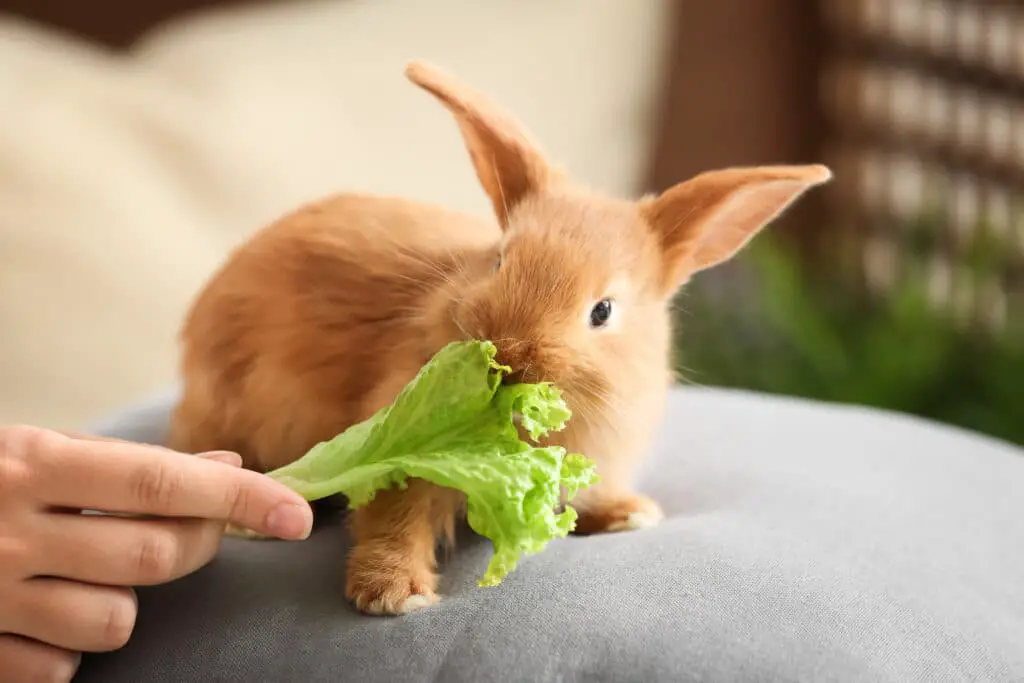
Conclusion
As we delve into the intricacies of what rabbits like to eat, a clear picture emerges of their dietary preferences and nutritional needs. Understanding the foods that align with their natural instincts and contribute to their overall well-being empowers us to be responsible and attentive caretakers.
Providing rabbits with a diet that includes a variety of fresh vegetables, nutrient-rich greens, and high-quality hays not only addresses their physical health but also caters to their mental and emotional satisfaction. Observing their enjoyment of these foods serves as a reminder that rabbits food, like any creatures, possess distinct tastes and appetites that deserve our consideration.
Yet, it’s crucial to strike a balance. While rabbits may have their favorites, moderation and proper portion control are essential to prevent digestive issues and ensure their optimal health. Consulting with veterinarians and experts in rabbit care helps us navigate the intricate landscape of rabbit nutrition, tailoring their diets to suit their individual needs.
In essence, understanding what rabbits like to eat is an invitation to deepen our connection with these delightful companions. By providing them with the foods they naturally enjoy, we enrich their lives and contribute to their overall happiness and vitality. Through knowledge, care, and a dash of culinary creativity, we can create a dining experience that nourishes both their bodies and their spirits, fostering a harmonious bond that lasts a lifetime.

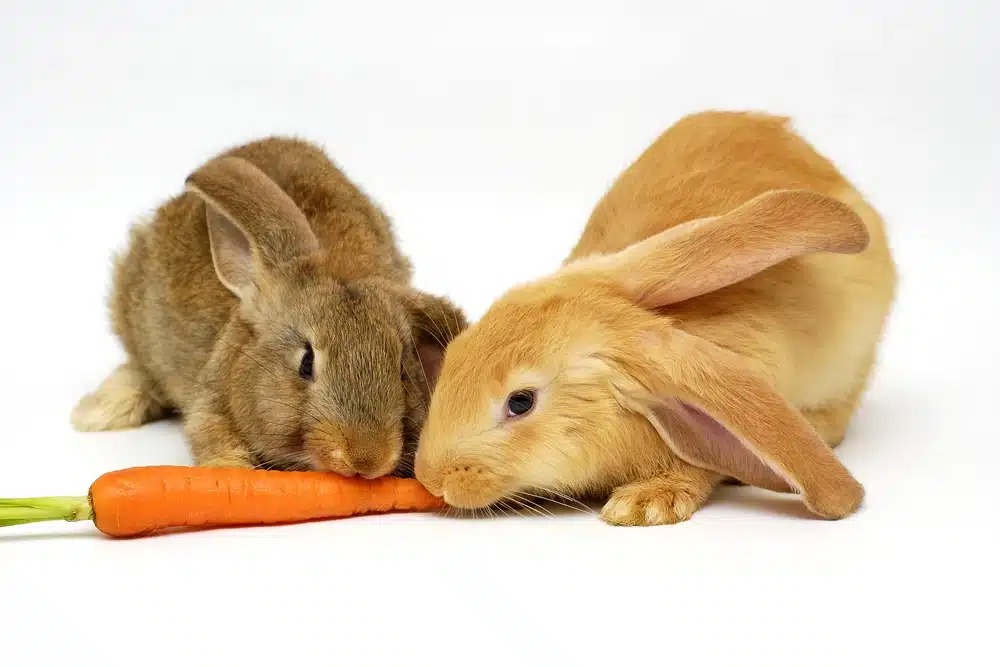
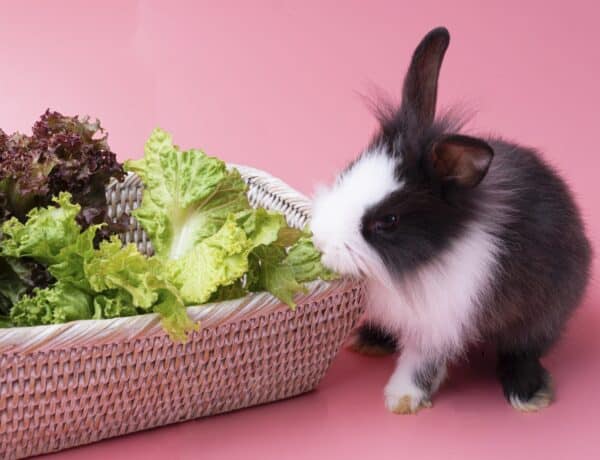
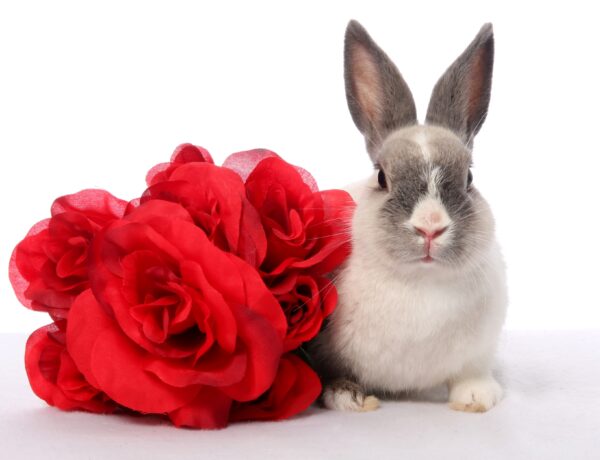
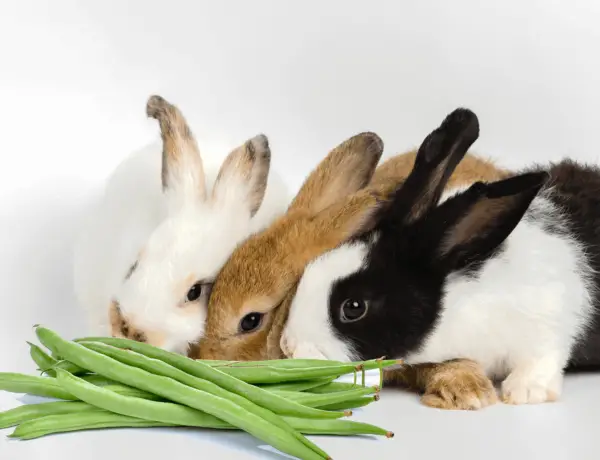
No Comments